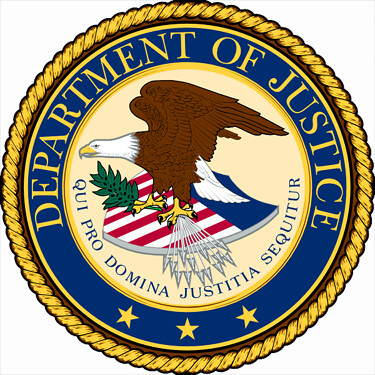The Occupational Safety and Health Administration (OSHA) does not routinely inspect all employers, but instead allocates its inspector resources based on the agency’s evolving compliance and enforcement priorities. These priorities include a complex set of national/state/local priorities, such as “national emphasis programs (NEPs)” for process chemical safety or machine guarding, industry focus projects on primary metals industries, and site-specific responses to reported injuries or worker complaints. To meld and rationalize these overlapping priorities, OSHA headquarters periodically establishes weighting programs under which local offices tabulate inspection statistics to demonstrate inspection productivity by achieving higher overall scores. Effective October 1, 2019, OSHA has introduced a revised inspection weighting system, intended to motivate local OSHA offices to revise their inspection priorities.
Read MoreAudit, Compliance and Risk Blog
Tags: Business & Legal, Employer Best Practices, Health & Safety, OSHA, Employee Rights, PSMS
Since assuming office, President Trump and his administration have generally sought to reduce and repeal formal federal regulations, and to tighten appointed agency heads’ direct control over their agencies’ regulatory actions. These efforts have included executive orders (EO) from the President providing government-wide mandates and priorities (For example, I wrote about EO 13777, “Reducing Regulation and Controlling Regulatory Costs”, here). They have also included formal regulatory proceedings, mostly directed toward reducing or revoking requirements adopted during President Obama’s tenure (for example, I wrote about the latest changes to national vehicle emission standards here). Individual agencies have followed and reinforced these efforts (For example, I wrote about the Environmental Protection Agency “Back to Basics” initiative here).
Read MoreTags: Business & Legal, Audit Standards, Environmental, EHS
Department of Justice Reemphasizes its Disfavor for Supplemental Environmental Project Agreements with State and Local Governments
Posted by Jon Elliott on Tue, Oct 15, 2019
Since President Trump took office, the US Department of Justice (DOJ) has taken repeated steps to restrict federal attorneys from negotiating settlements in which defendants agree to conduct “supplemental environmental projects (SEPs)” in exchange for reduced formal penalties for the noncompliance that led to the agency investigation and enforcement. Proponents see SEPs as a way to promote environmental and health values by encouraging defendants to undertake projects that wouldn’t occur otherwise in order to reduce or eliminate civil and/or criminal liability. Opponents see them as rogue efforts in which prosecutors substitute their own judgment for the statutory and regulatory directives that are supposed to guide their actions.
Read MoreTags: Business & Legal, Environmental risks, Environmental, EHS, EPA, clean water
Business Roundtable (Re)states Position for Broad Corporate “Purpose”
Posted by Jon Elliott on Tue, Oct 08, 2019
The Business Roundtable has just offered its answer to the question “what’s the purpose for a corporation”? There are various ways to ask that question – existentially, legally, and/or operationally. Because the Roundtable is an association of chief executive officers of (CEOs) of many of America’s leading companies, its formal statements reflect the views of forward-looking Big Business. The Roundtable is most focused on the operational version, although press reports are pushing in all directions. The remainder of this note looks at what the Roundtable actually said, and provides some context to the multi-faceted question.
Read MoreTags: Corporate Governance, Business & Legal, directors, directors & officers
DC Circuit Upholds Most of EPA’s 2015 Standards For Ground Level Ozone
Posted by Jon Elliott on Tue, Sep 17, 2019
On August 23, the federal Court of Appeals for the District of Columbia (DC Circuit) upheld most aspects of the National Ambient Air Quality Standards (NAAQS) for ground level ozone adopted by the Environmental Protection Agency (EPA) in 2015. The Clean Air Act (CAA) requires EPA to create a list of air pollutants based on emissions that cause or contribute to air pollution that may reasonably be anticipated to endanger public health or welfare (criteria pollutants), to establish NAAQS based on these criteria, and to review the NAAQS every 5 years.
Read MoreTags: Business & Legal, Health & Safety, Environmental risks, Environmental, EPA, Greenhouse Gas, ghg, CAA
Reversed on Appeal: Workplace Harassment Isn’t a Tort In Ontario After All
Posted by Jon Elliott on Tue, Sep 03, 2019
Although an ever-expanding range of laws prohibit workplace harassment, the Court of Appeal for Ontario has now ruled that harassment is not a free-standing common law tort in that province. This ruling reverses a trial court ruling by the by the provincial Superior Court of Justice that shocked employment law in 2017. This ruling returns workplace harassment to the realm of statutory and regulatory requirements and prohibitions, which certainly isn’t unambiguous, but at least offers more structured frames of reference. The case is Merrifield v. Canada (Attorney General), and it litigates a complaint between a member of the Royal Canadian Mounted Police (RCMP) and his employers.
Read MoreTags: Business & Legal, Employer Best Practices, Employee Rights, Workplace violence, Canadian
Motor Vehicle Greenhouse Gas Standards–California and Four Manufacturers Finesse the Turf War With the Federal Government
Posted by Jon Elliott on Tue, Aug 20, 2019
Since the Trump Administration reversed the federal government’s agreement with California for joint motor vehicle greenhouse gas (GHG) standards, federal and state agencies have moved steadily to assert their respective authorities and to sue their counterparts. However, on July 25, 2019 California and 4 major vehicle manufacturers announced a voluntary agreement that eases the state requirements somewhat while making the looser federal standards irrelevant for those companies – and for any additional manufacturers that might join later.
Read MoreTags: Business & Legal, California Legislation, Environmental risks, Environmental, Greenhouse Gas, ghg
Canada—Federal Employers: Prepare for a Wave of Change in Workplace Harassment Obligations
Posted by Maryse Tremblay on Tue, Jul 30, 2019
In the last few years, and particularly with the advent of the #MeToo movement, some employers may have seen a rise in the number of harassment complaints in the workplace, including sexual harassment complaints. Employers under federal jurisdiction have been affected as well.
However, the current legal framework surrounding harassment and violence in federally regulated workplaces is fragmented. The results of many public consultations have shown that this framework is not currently designed to adequately address occurrences of sexual harassment and sexual violence.
In that context, in the past 18 months, significant changes have been proposed to the current legislation to address workplace harassment situations.
Tags: Business & Legal, Employer Best Practices, Health & Safety, Employee Rights, Workplace violence, Canadian
“I AGREE.” Anyone who engages in online commerce has likely had to click on that button countless times. The question is whether contracts made under these and similar circumstances are enforceable. The typical lawyer’s answer would likely be “it depends,” but those drafting online agreements, such as privacy policies, terms and conditions (T&C), and end-user license agreements (EULA), can take certain measures to make certain such agreements are ultimately enforceable.
Read MoreTags: Business & Legal, Internet
Since President Trump took office, the Environmental Protection Agency (EPA) has taken a number of steps to narrow benefit-cost analyses, reversing expansive approaches used during the Obama Administration and narrowing the scope of “justifiable” environmental and health regulations. The latest such step appears in a May 13 memorandum from EPA Administrator Wheeler to his Assistant Administrators.
Read MoreTags: Business & Legal, Environmental risks, Environmental, EHS, EPA










